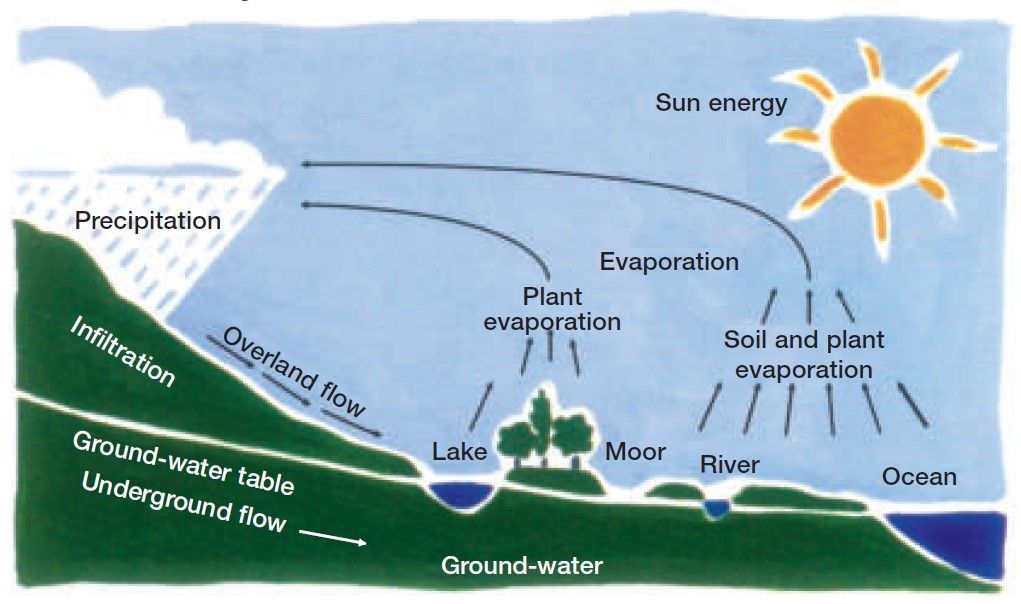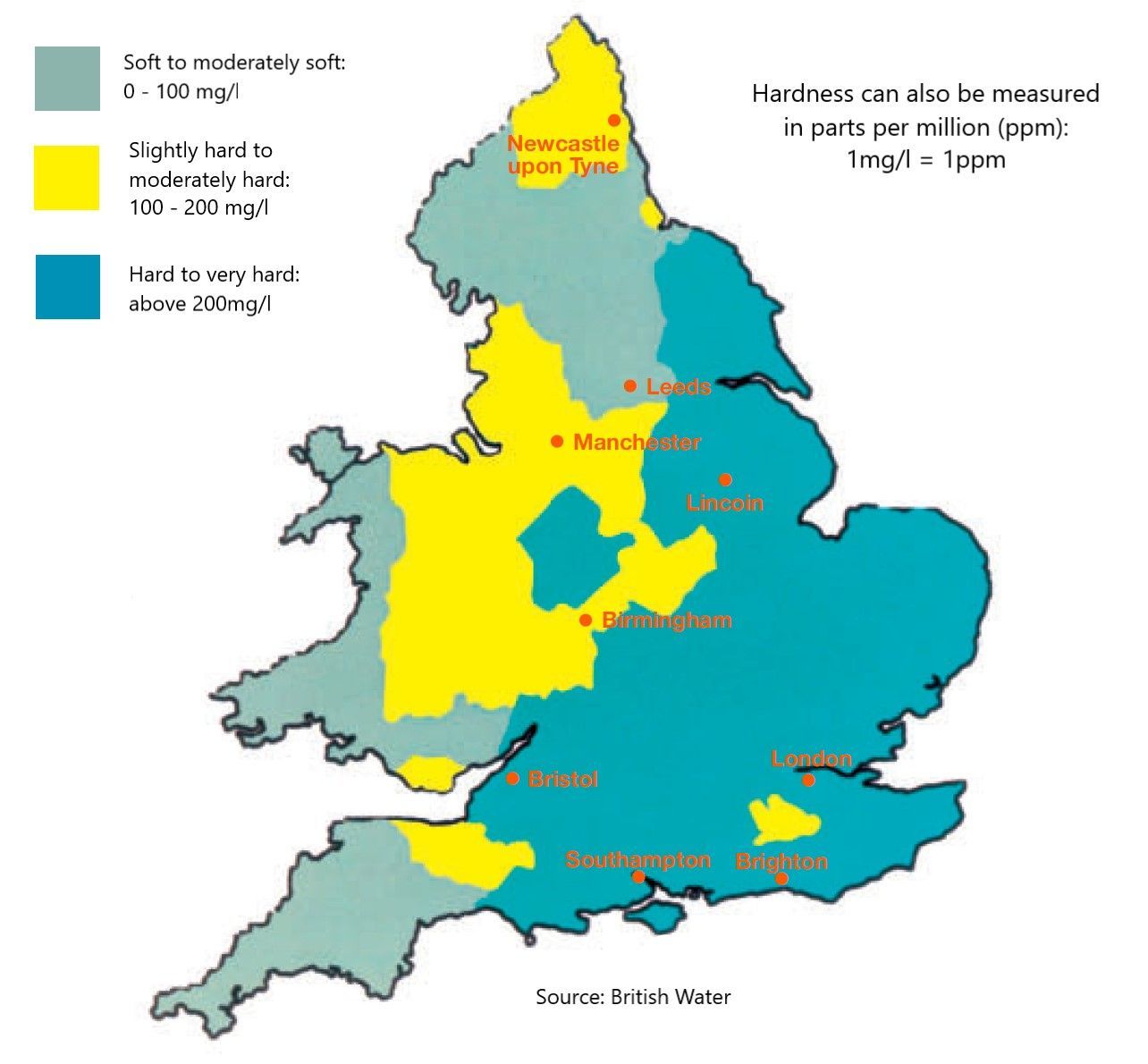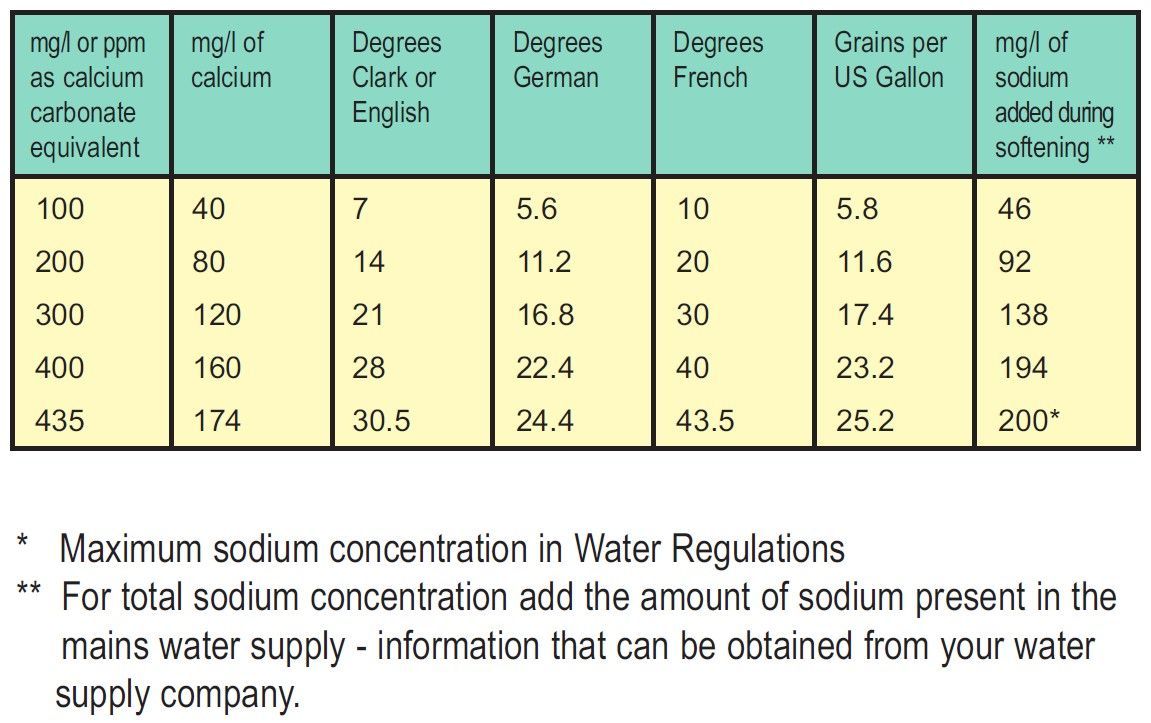Frequently Asked Questions
-
Q. Why do we get hardwater?
Hard water is water that contains dissolved chalk, lime and other minerals. Rainwater is naturally soft, but as it percolates through chalk and limestone it dissolves and collects these minerals. Rainwater which falls on hard rock remains naturally soft. The hardness of the supply of mains water to your home is dependent on where you live and the source.
-
Q. What are the effects of hard water?
A Scale, scum and tidemarks around baths and basins. The minerals contained in the hard water settle out as an unsightly deposit of hardness scale whenever the water is heated, or when cold standing water evaporates.
Examples of this are:
- Unsightly white marks, stains and scale on sinks, baths, toilet bowls and around the base of taps; blocked shower heads
- Clogging of pipework and premature failure of water heaters and white goods
Water hardness also makes it difficult to get a good lather, so more soap is required for washing. Even after washing, clothes can be left grey and dingy, and dishes and glasses dull or smeared
-
Q How can I find out if my water is hard?
The easiest way is to give us a call, arrange a free survey and we can test your water hardness during our visit. Generally speaking though, hard water is supplied to 60% of homes in the UK: especially in central, eastern and southern areas of England. Some English cities are supplied with naturally soft water from Wales and the Lake District. Water quality information, including hardness levels, for individual supplies is available from your water supply company.
-
Q How is hard water softened?
To fully soften water the minerals (calcium and magnesium) which cause hardness must be removed. These minerals are removed by ion-exchange. Domestic ion-exchange water softeners use this process and are the only products which are specifically designed to completely remove all hardness from your mains water supply. The softened water will also gradually remove existing scale from pipework, bathroom fittings and heating elements.
-
Q How do water softeners work?
Hard water is passed through a cylinder containing millions of tiny beads of ion-exchange resin which attract and remove the hardness minerals from the water. The resin is automatically cleaned or “regenerated” by rinsing a small amount of brine (common salt - sodium chloride - dissolved in water) through the cylinder. The sodium from the salt is left in the resin as it is exchanged for the hardness minerals trapped by the resin. The used brine, containing the accumulated hardness, does not enter the household water system - it is automatically flushed away into a drain. Refreshed by the regeneration, the resin is again ready to remove hardness minerals, ie to soften the water. This process is known as “ion-exchange”.
-
Q Should a water softener be installed to leave a drinking tap which supplies unsoftened water?
Yes. Although there is no absolute legal requirement in the Water Supply (Water Fittings) Regulations, 1999, the British Water Code of Practice recommends that a mains water tap should be fitted, where reasonably practicable, when an ion-exchange water softener is installed. It is particularly important that all water mixed with powdered milk for babies’ feed is drawn from an unsoftened mains tap. This is because powdered milk already contains sufficient sodium, and very young babies have a limited tolerance to sodium. Anyone on a sodium-restricted diet should follow their doctor’s instructions.
-
Q. Can I drink softened water
For most people the simple answer to this is yes, drinking softened water is safe . However there are a few exceptions to this, which are outlined in the follwing Q & A "who should avoid drinking softened water"
-
Q. Who should avoid drinking softened water?
If your water hardness exceeds 400ppm then you should not drink softened water, because the amount of sodium in the water exceed s the maximum amount allowed under the Drinking Water Regulations. For everyone else it is perfectly safe to drink softened water, with two exceptions:
Infant milk formula should not be made up with softened water. Some babies’ kidneys are not fully formed and the milk formula already contains the right amount of sodium. The additional sodium in softened water upsets this balance and some babies have been known to suffer from dehydration. If you have been advised by a doctor to be on a low sodium diet, then it is recommended not to drink softened water as it will contribute to your sodium intake
-
Q. What kind of salt should be used?
We can give you the correct advice on salt type and quality to use
-
Q Where can I buy salt?
This is an easy question to answer as we would love to look after you as a returning customer.
-
Q Can a water softener be moved and relocated?
Definitely yes. It is as easy as removing a washing machine or dishwasher and can be moved from home to home. In many cases, a water softener has been known to help sell a property as a result of its protection of the hot water system and bathroom sanitaryware.

Source: International Water Association
How hard is my water

Other methods of measuring water hardness


